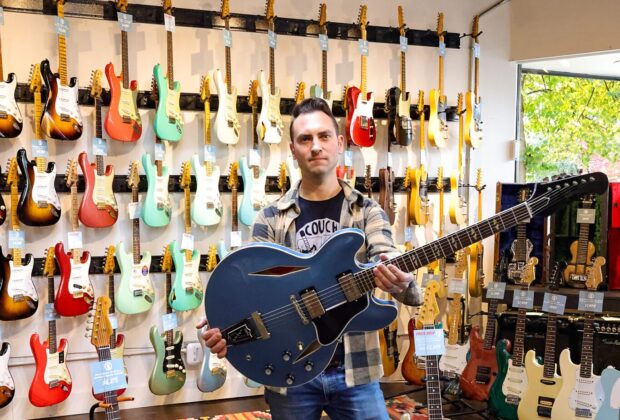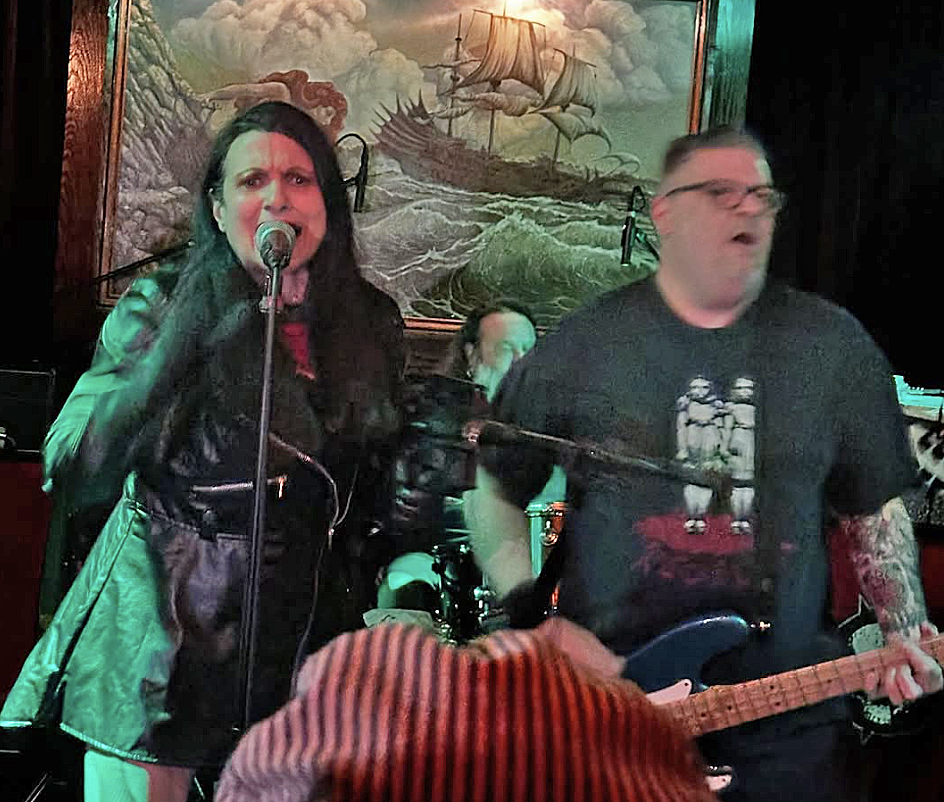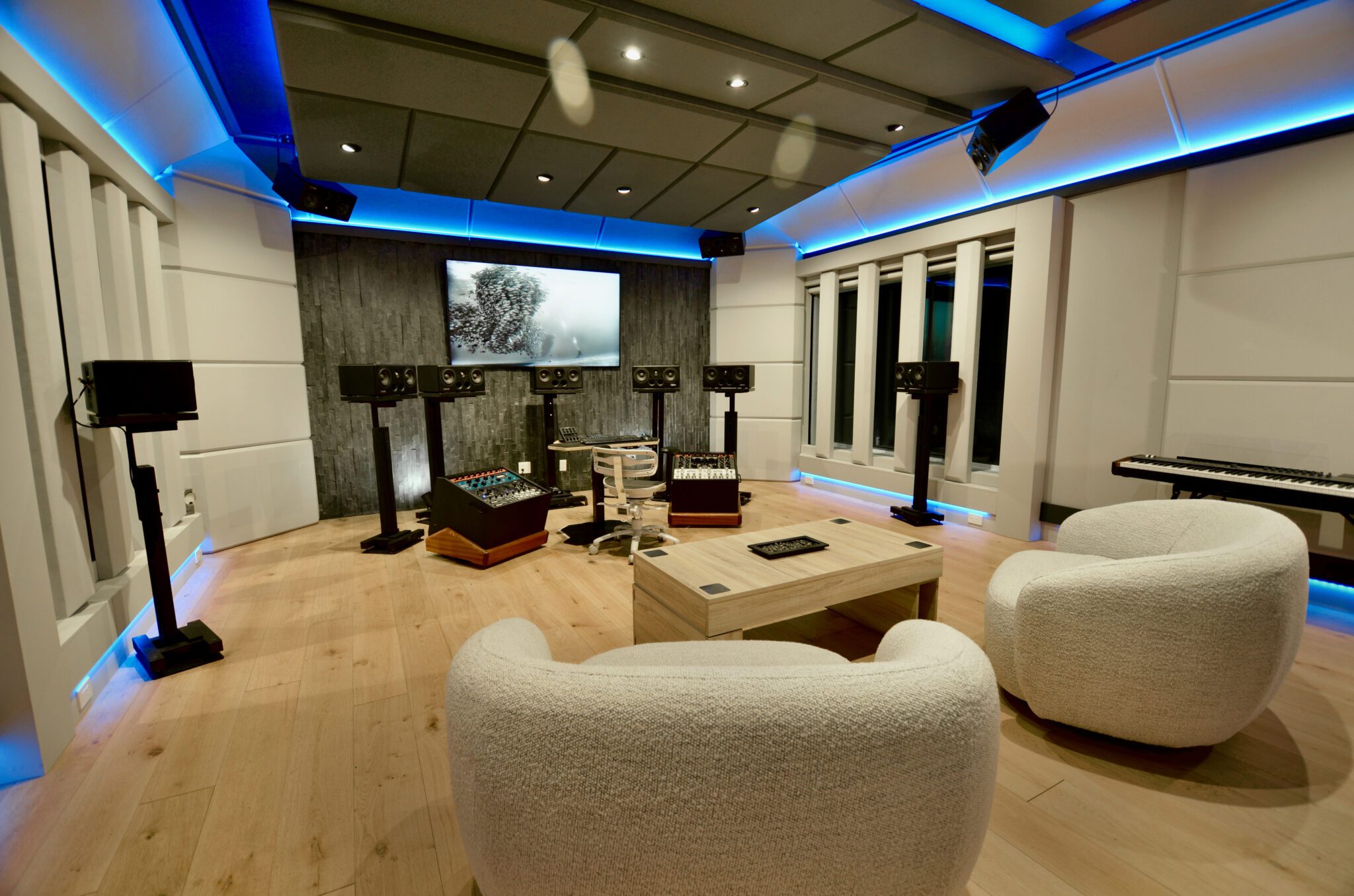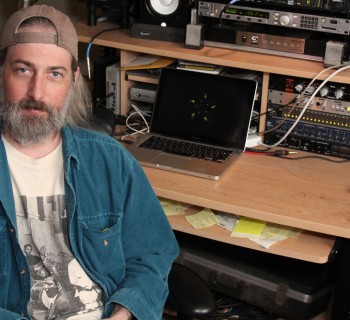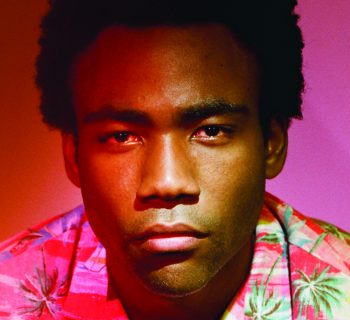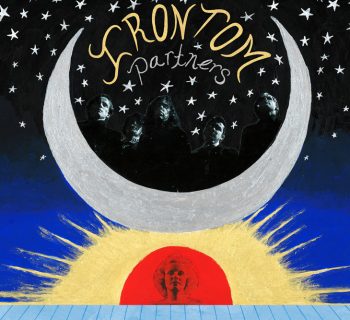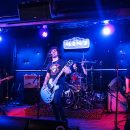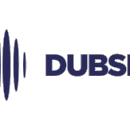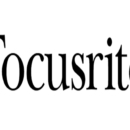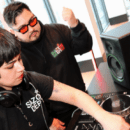Founded by Frank Gross, West Seattle’s Thunder Road Guitars—along with its sister store The Bass Shop—has become a premier destination to find rare, vintage, and custom-made guitars, basses, amps, and gear. The success of its flagship location led to the opening of a second brick-and-mortar store in Portland. Together, the two spaces have become a hub for musicians of all styles and genres, offering a place to find the “perfect” instrument and create an exceptional signal chain. Frank Gross reflects on the journey of transforming his business from a bedroom-based online shop into one of the nation’s leading resources for everything that goes hand-in hand with metal strings.
What was your first memory of picking up a guitar?
My very first memory of picking up a guitar was when I was 10 or 11 years old. My dad played guitar; a refinished 1960s Danelectro U2. At the same time, I started getting into more guitar-oriented music, falling head over heels with Nirvana’s Nevermind and Green Day’s Dookie. I remember coming home from school and asking my dad to teach me some chords on his guitar. This was my first venture into playing and learning—I don’t know where that guitar ended up, but I wish I still had it.
What was your trajectory from picking up a guitar to starting your own business?
I played [in] bands throughout most of my teen years and early 20s. I was lucky enough to put out a few records on one of the largest independent record labels in the U.S. [Victory Records with the band On the Last Day]. We toured around the country and internationally. In between being on the road, I worked at a vintage guitar shop in Seattle, Emerald City Guitars, and later at Guitar Center. When I hit my mid-20s, my music career was taking a toll on me. My wife recommended starting my own guitar shop and brand. Through some trial and error, I was able to get Thunder Road’s e-commerce business off the ground in the fall of 2011. We opened our first brick-and-mortar location in 2012.
Starting a business takes a lot of drive and hard work. Describe transitioning from e-commerce to opening your first store in West Seattle.
I started this business in a one-bedroom apartment with a few bucks—when I say a few bucks, I really mean it—and six or seven guitars. My close friend and resident designer Aaron Johnson built the website. At first, Thunder Road operated solely as an online business, it has always been its backbone and an important facet of [how Thunder Road Guitars is run]. This early online groundwork also made navigating and surviving the Pandemic easier. Our e-commerce manager John Kieltyka, who handles all our product photography and web listings, and Samantha Parsons, who handles all our shipping and receiving, are part of the reason why our e-commerce side of our business is what it is today.
When did you set up the refurbishing portion of Thunder Road Guitars?
Repairs have been part of our business since day one and are an integral part of our day-to-day operations. We have an amazing in-house tech, Dan DeWolf, who is responsible for managing and performing customer repairs.
Thunder Road Guitars is known for having an amazing selection of vintage and new guitars, amps, pedals, and gear, as well as taking great care in curating its inventory. What criteria do you use in sourcing your selection?
I’ve been a vintage guitar nut since I was a teenager, and growing up around old guitars helped me develop a wide taste and vast knowledge of vintage guitars. At [Thunder Road] we hand-pick and source our guitars, we always aim to have a well-curated and fun selection of vintage and used instruments.
For inventory, we travel to most of the major vintage guitar shows around the country and oftentimes come back from with 50 or 60 guitars. [In general], we seek clean and original vintage electric and acoustic guitars from classic American brands such as Gibson, Fender, Epiphone, Gretsch, Martin, and Rickenbacker. [Additionally,] we thoroughly enjoy looking for more obscure instruments from the 1950s and 1960s, such as Danelectro, Silvertone, Harmony, Supros, Hamers, vintage shredder guitars, and pedals and effects. Loyal customers also regularly walk in with rare guitars.
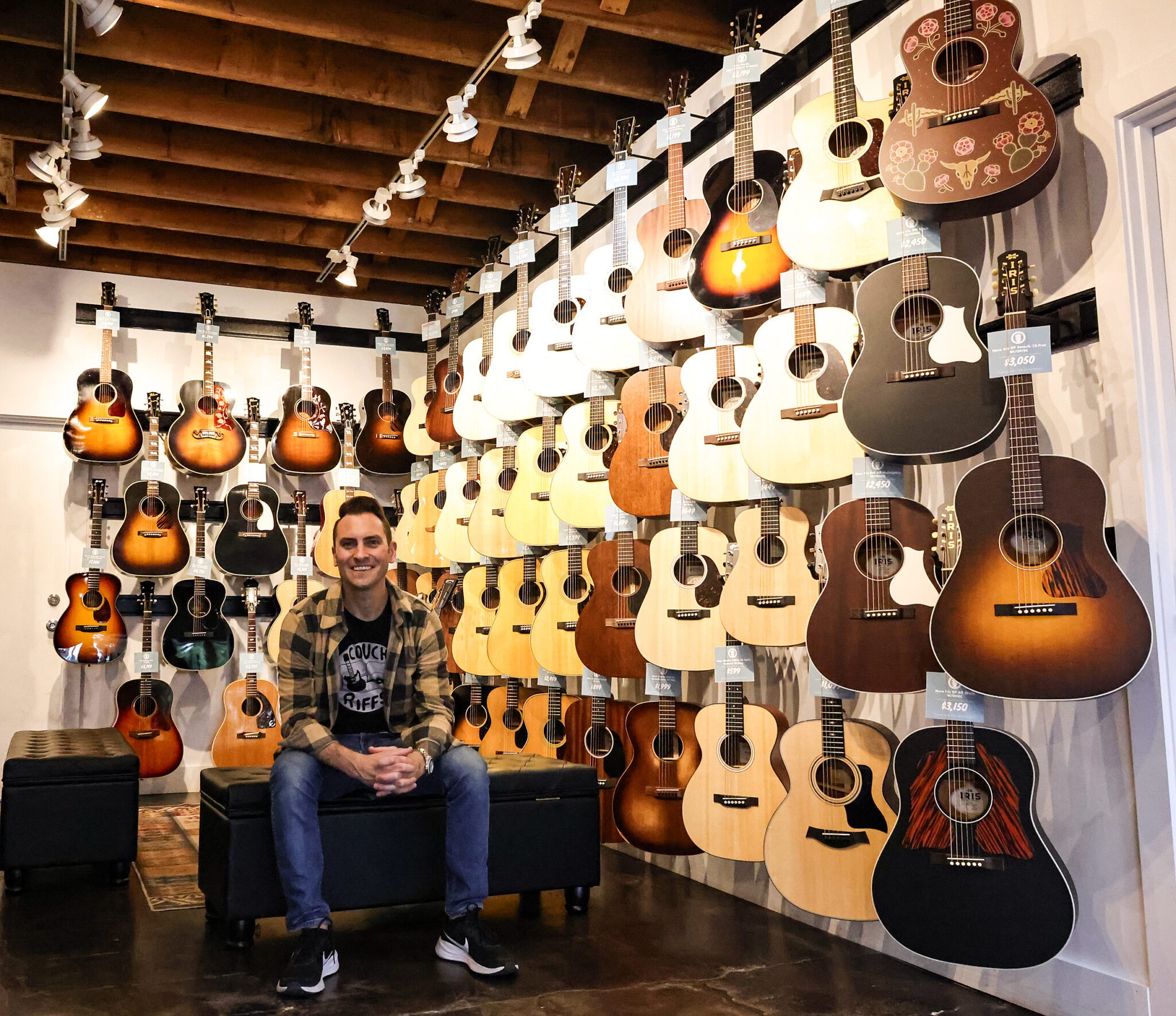
Do you ever work with luthiers to find or create a one-of-a-kind guitar requested by a guitarist/musician?
We don’t do a lot with small one-man operation builders, but we carry an array of boutique brands such as Rock n Roll Relic Guitars, Collings Guitars, Nash Guitars, Benson Amplifiers, Two Rock Amplifiers, Friedman Amplifiers, and more. We also work closely with the Fender, Gibson, Jackson, Charvel, and Martin Custom Shops to create one-off or small-batch instruments that we design and spec out. These brands have some of the best guitar builders in the world, and we really try to make these instruments all our own. Dreaming up our vision of what a Strat or Les Paul could be is one of my favorite parts of my job.
How do you take care of so many vintage pieces and ensure they are authentic?
We take great pride in knowing our store inventory. On the vintage side of things, we have a step-by-step process for evaluating and authenticating our inventory to ensure these instruments are as advertised and make notes of any changes, replaced parts or playability issues. For the short time these historical instruments are in our store, we are their custodians, and it is our duty to care for and ensure they are stored in a climate-controlled and safe manner [until they find their new homes.]
When and why did you decide to expand your business and add another store in Portland?
In 2017, my then-employee and now-partner Will York and I decided to expand Thunder Road to downtown Portland, OR. Our goal for this location was to be a carbon copy of what we have built in Seattle—handpicked selections of premium vintage and used gear. We put a lot of effort into stocking both locations. The Portland store has grown substantially since it opened, and is a go-to destination for musicians and collectors in Oregon.
What is the decision-making process when stocking newer models?
We really try to handpick the instruments that we carry from the new brands we stock and not just order anything and everything available. Back in the early 2000s it would have been difficult for a store of our size to carry a brand like Gibson or Fender. Nowadays, the dealer/brand relationships seem more freeform, making it possible for a store like Thunder Road to carry these brands. It is important to me that when someone walks into one of our stores, they see instruments they might not see in big-box stores or other retailers.
What’s the best instrument or piece of gear you currently have available, and why?
There are always a handful of guitars in the store that we are extra thrilled to have in stock. A few that come to mind today are a 1959 Fender Jazzmaster in near mint condition with a matching Tweed Pro Amplifier, complete with hang tags. This guitar and amplifier have been together their entire life [and we would like them to remain together]. Another instrument we are excited about is the new Gibson Custom Shop SJ-200 Thunder Road Stinger Series in black with two white pickguards. We designed and spec’d out this SJ-200 with the Gibson Custom Shop and couldn’t be happier with the results.
What is one of the most unique days you’ve had on the job?
We’ve had a lot of fun and wild days at the store over the years, but on a slow summer day around 2017 we had zero sales. Maybe 30 minutes before closing, Mike McCready from Pearl Jam and Tom Peterson and Rick Nielson from Cheap Trick came walking in to look at guitars and hang out. It was such a rad thing to happen on what otherwise was a bummer of a day.
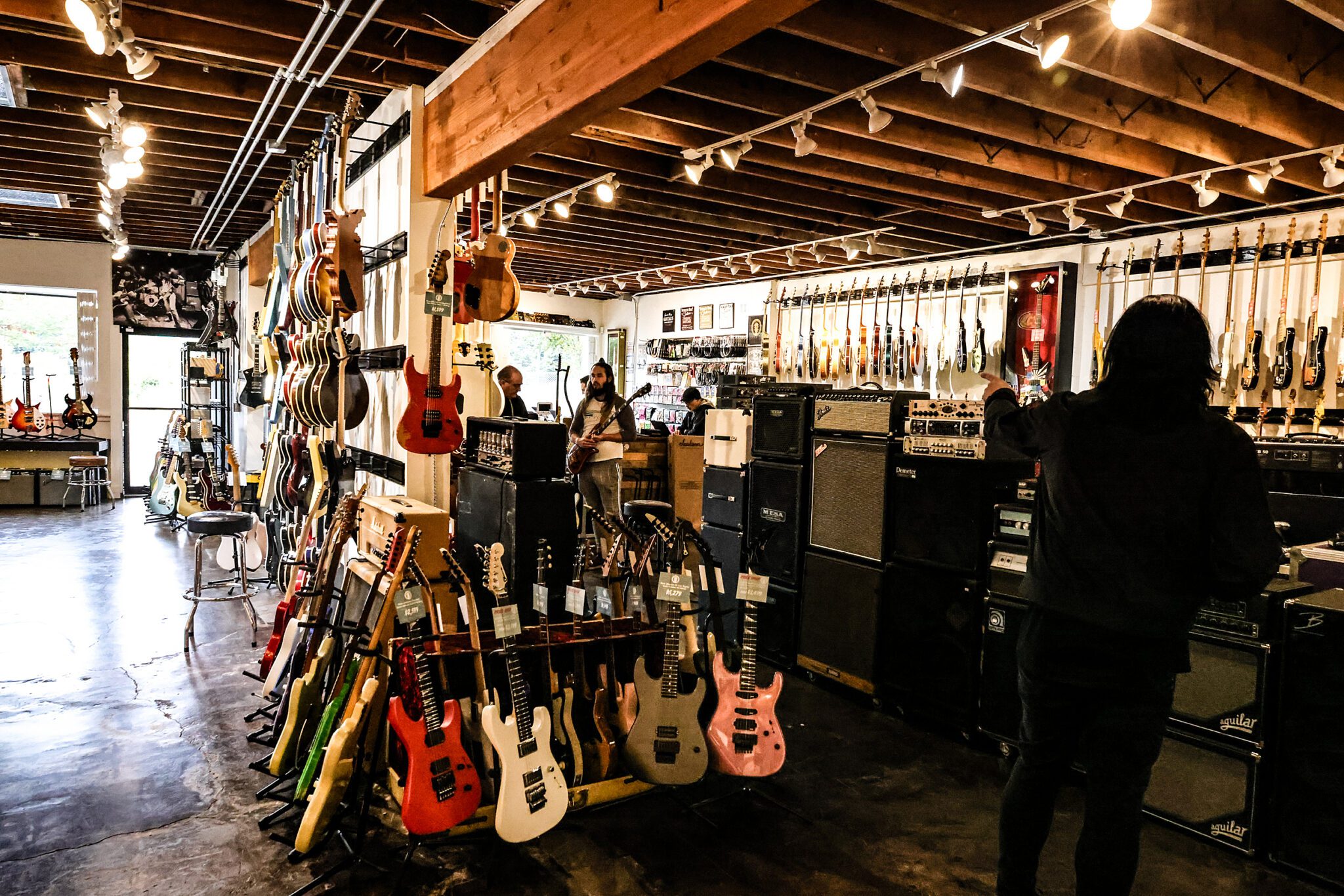
Are there any trends have you noticed in the vintage guitar market over the years?
The dynamics of [popular] in-store vs. online shopping brands vacillate as well as the prices of vintage guitars. Prices kept climbing from the early 2000s until the economic collapse of 2008-2010. When that happened, everything hit the brakes, nothing was left unaffected. Prices seemed to stabilize around the time we opened in 2011. [COVID 2020 and Post-COVID 2021] it seems like everything in the vintage world went nuts. Prices jumped through the roof… higher than even the pre-2008 peak on others. It was such a strange thing to see happen in such uncertain times.
What are your long-term goals for the shop?
Every calendar year I write out a new set of goals for Thunder Road, some large and some small. Throughout the year, I’ll revisit these goals and modify when necessary. Running a small business like ours you just do not know what’s going to happen. If something flips you’re [suddenly] swimming upstream. Currently, we are in drastic need of more physical space and [how to create it]. We’ve moved this store three times and [moving a fourth time would be hard]. That said, my long-term goal is finding our forever home- which of course will remain in West Seattle.
What are the most rewarding aspects of owning Thunder Road Guitars?
Employing great people. We have a fantastic crew in Seattle and Portland. They are the face of Thunder Road, and we are truly lucky to have them. Additionally, it is humbling to think of how we started and how we have grown over the years into what we are today.
[It is of note that the shop’s clientele includes some of the biggest names in the industry with customers including Mike McCready from Pearl Jam, J. Mascis, and Pete Townshend to name just a few of many.]
For information, visit thunderroadguitars.com.

